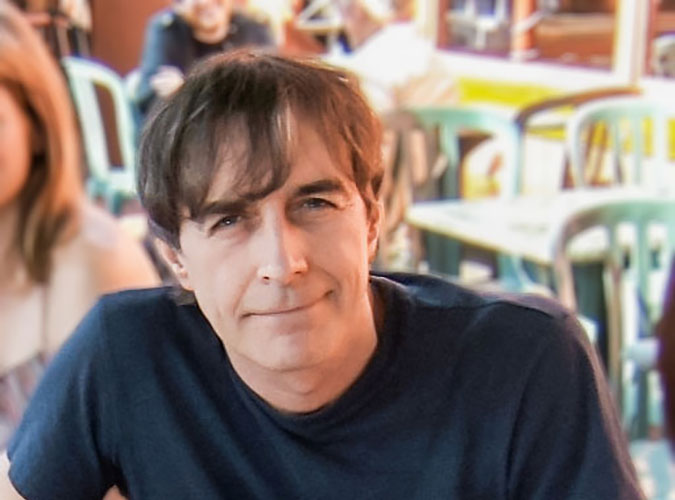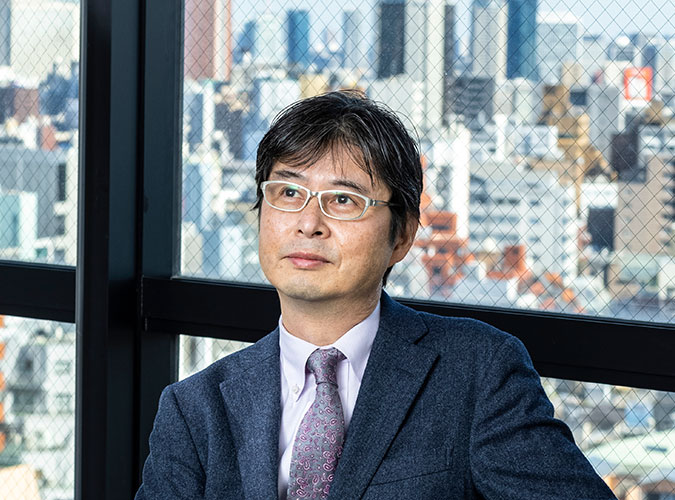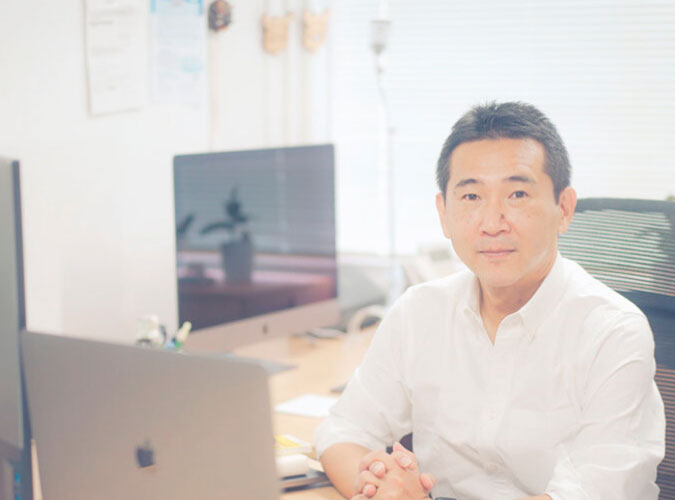PROFESSOR'S
REPORT
He is an educator who watches over growth and an uncompromising researcher.
The commitment to quality is alive and well.
All faculty members at Aoyama Gakuin University know that the joy of "understanding something that was previously unclear" awaits them as they strive to pursue the truth and get to the essence of things. They respect the free will of their students and do their best to bring out the strengths that each of them possesses in order to share that joy together. The "ability to discern the essence" that each student gains through their research will surely be a force that will help them break through in these uncertain times. In this article, we will introduce our faculty members from various angles, including their wide-ranging experiences and research, as well as their current achievements.

Sayoko Iizasa
He completed his doctoral studies at the Hitotsubashi University Graduate School of Sociology in 2006. He has served as a research fellow at the National Institute for Advanced Industrial Science and Technology and a visiting fellow at the University of New South Wales Asia-Australia Institute, before assuming his current position in 2016. His specialties are multicultural society theory, mobility studies (immigration, refugees, citizenship), cross-border cultural theory, Australian studies, and Quebec studies. His major works include Citizenship and the Multicultural Nation: A Perspective from Australia (Nihon Keizai Hyoronsha, 2007, winner of the 24th Ohira Masayoshi Memorial Prize), People Crossing Sea Borders: Pearls, Sea Cucumbers, and the Arafura Sea (co-edited and authored, Commons, 2016), Responding to "Movement and Place": A Perspective on 21st Century Society (co-authored, Harvest Publishing, 2019), Australian Multicultural Society: Aiming for Coexistence with Immigrants, Refugees, and Indigenous Peoples (co-authored, Horitsu Bunka Sha, 2020), 60 Chapters to Understand Modern Canada [2nd Edition] (co-authored, Akashi Shoten, 2021), and A University-Style Guide to Australia: A Guide to Walking with a Focus on the Best Ways to Do It (co-authored, Showado, 2021).
 Focusing on the power of art to realize a society where multiple cultures coexist
Focusing on the power of art to realize a society where multiple cultures coexist
I am researching the ideas and policies needed to realize a society where diverse cultures, religions, and values can peacefully coexist, using examples from countries such as Canada and Australia, which have accepted many immigrants and refugees. While some nations have been torn apart by ethnic or religious conflict, there are also countries where multiple ethnicities coexist. Interested in these differences, I decided to major in international politics.
Because I deal with issues occurring on the front lines of the international community, I value a sense of the field. Rather than blindly accepting information from one direction, I have listened to the voices of local people and endeavored to approach my research subject from as many different perspectives as possible. One research project that remains vivid in my memory was the one that allowed me to meet the "Sea People" of Indonesia. Although for generations they have lived in a vast area of ocean stretching all the way to the coast of Australia, at one point a border was drawn and they could no longer travel freely. Listening to their unreasonable experiences made me think about various "boundaries," including national borders.
In recent years, an increasing number of refugees are fleeing their home countries across borders due to conflicts and other reasons around the world, some of whom are crossing the ocean in boats operated by the aforementioned "Sea Peoples." On the other hand, we are also seeing the rise of forces that reject refugees in some host countries. We hope that the power of art can help to counter politics that divide people and prevent coexistence. What impact do the messages conveyed by artworks and films have in raising people's interest in the refugee issue and promoting multicultural coexistence? We will continue to take on the challenge of developing new research, focusing on the relationship between art, society, and politics.
 A contemporary art museum that will be one of the venues for the Sydney Biennale
A contemporary art museum that will be one of the venues for the Sydney Biennale
AGU RESEARCH | BACK NUMBER
Understanding the Olympic Opening Ceremony's "Arts Program"Professor Sayoko Iizasa
This column focuses on the "arts programs" at the opening ceremonies of the Olympic and Paralympic Games held in Sydney, London, and Rio de Janeiro. It explores the stories about diversity and coexistence that were embedded in each production.
Columns that explain the world
The SSARC model leads to a future where people can choose the learning method that best suits their cognitive abilities
College of Literature
Robinson, P.J. Professor
The "SSARC model" theory, established by Professor PJ Robinson, a pioneer of Task-Based Language Learning, is spreading and being developed by researchers in various countries.
VIEW DETAILS →
Predicting population distribution for the next few decades by block and district
Providing basic data for urban and disaster prevention planning
College of Economics
Professor Takashi Inoue
A long-term, detailed forecast of changes in the population structure is essential for policymaking. Professor Inoue applied classical theory to devise a groundbreaking equation, enabling him to estimate future populations for each small region of the country.
VIEW DETAILS →
Visualizing service quality and exploring the future of "customer satisfaction"
School of Business
Professor Joji Ono
We will consider the state of service in Japan from the perspective of the Japanese Customer Satisfaction Index (JCSI) survey, which is widely used to visualize customer satisfaction in the service industry.
VIEW DETAILS →
AGU RESEARCH
The world we live in is filled with a variety of problems, from issues close to us to major issues that affect all of humanity. What is the reality of these issues, and what is their true nature? Our outstanding faculty will unravel the surprisingly unknown current situation and truth from an interesting perspective.

